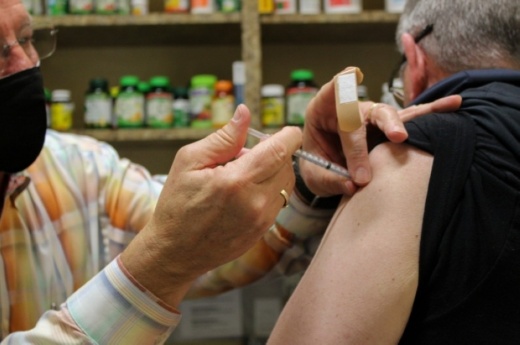On Aug. 30, the Dallas-Fort Worth Hospital Council reported over 3,300 COVID-19 cases in the region with over 50% of current adult ICU patients being sick with the coronavirus.
In a call with the Las Colinas-Irving Chamber of Commerce, DFWHC President and CEO Stephen Love said the continued wearing of masks and increased vaccinations are showing promise in curbing the spread of the virus.
“This whole surge candidly is to two things,” Love said. “It's primarily the delta variant, and the delta variant is going after, for the most part, the unvaccinated. ... The more cases you have, the more [the virus] replicates, the more chances it can mutate and you get yet another variant," he continued. "Assuming we don't get another variant, hopefully, if we continue vaccines ... and we continue to wear a mask, we'll get through this.”
Breakthrough cases have been reported among vaccinated people, but on the call Love noted the vaccine’s main purpose is to prevent hospitalization. According to anecdotes shared with the council, Love said only 1%-2% of breakthrough delta cases have resulted in hospitalization.
“The vaccines are doing what they're designed to do,” he said “You can still get a breakthrough virus, no question about it—but you tend not to be as sick, probably won't be hospitalized.”
As of Aug. 31, the council is reporting hospitals in TSA E, which includes Tarrant, Collin, Dallas and Denton counties, are seeing a 94% occupancy rate in children’s hospitals. Pediatric ICUs are dealing with delta cases and also respiratory syncytial virus cases, which are more common during the fall and winter months.
There are four pediatric ICU beds available in TSA E, Love said, adding hospitals can be flexible to ensure every patient is receiving care and treatment.
“We're getting some supplemental staffing,” Love said, referring to the nurse shortages that have placed greater demand and pressure on remaining staff. “I know the state has worked hard to get us [some nurses]. Many have been assigned, but they have not quite been deployed. And as you might guess, [the Federal Emergency Management Agency] is really struggling also to help other states, especially Louisiana. So everybody doing a trade-off, doing the best we can with the staff we have.”





